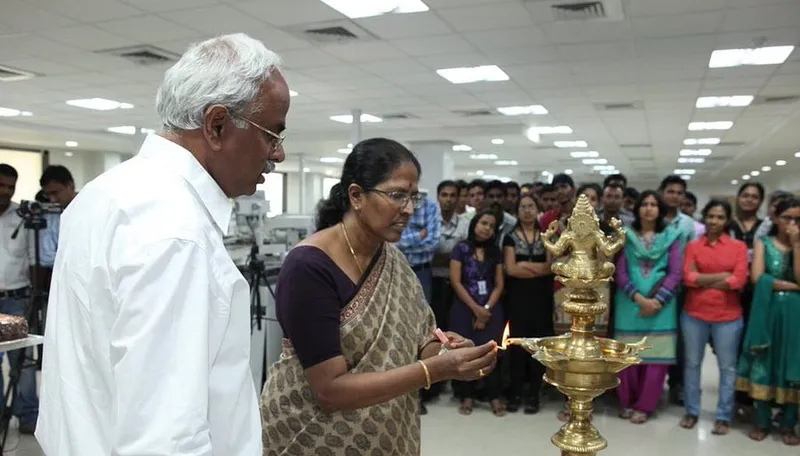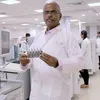[The Turning Point] How Thyrocare founder Dr A Velumani started up to give jobs to freshers
The Turning Point is a series of short articles that focuses on the moment when an entrepreneur hit upon their winning idea. Today, we look at how Dr A Velumani started diagnostics firm Thyrocare, which was recently acquired by PharmEasy.
Arokiaswamy Velumani or Dr A Velumani is an inspiration for millions of people for his honesty, modesty, and entrepreneurial spirit.
Most recently, when healthtech unicorn acquired 66.1 percent stake in Thyrocare for Rs 4,546 crore, Dr Velumani said that Rs 3,500 crore out of this will go for creating jobs for young employees who have always been my focus. Interestingly, this was exactly the same reason Dr Velumani started in 1996.
In a conversation with YourStory, Dr Velumani shares that plunging into entrepreneurship was one of his longest decisions - it took him four hours to decide, he chuckles. The other big decisions were marrying his wife (Sumathi), which he says he did not discuss with even his mother; Thyrocare IPO (2016), which was a 30-minute decision; and PharmEasy deal, which he says he closed in one minute.
He says, “If you discuss then you can't decide, and if you decide there is no need to discuss”. The only decision, he says, he had difficulty with was leaving Coimbatore and his mother for Mumbai.
The reason for starting up
Dr Velumani shares that while working at BARC, he realised that companies across sectors would only hire people with work experience and not hire fresh graduates.
“I felt this frustration and decided to start my own enterprise, which would hire freshers and give jobs to young people,” says Dr Velumani. “Today, I have successfully employed 12,000 freshers,” he adds.

Source: Twitter
Dr Velumani started Thyrocare with seed money of Rs 2 lakh in 1996, and now it is one of the leading diagnostics solution providers in the country by volume, performing over 110 million tests annually.
Thryocare is also one of the largest B2B players in the diagnostics space and has a network of 3,330+ collection centres across 2,000+ towns in India. It operates a multi-lab model with a mega central processing lab, two zonal processing labs, and 13 regional processing labs across the country.
The journey
Dr Velumani was born poor to a poor landless farmer in 1959 in a village on the outskirts of Coimbatore, Tamil Nadu. He was the eldest of four children, and he was sent to school because of the mid-day meal scheme. At 19, he graduated with the aim of having a white-collar job, but could not find himself a decent job, which he says was because of the same reason that freshers would not get ‘highly coveted’ white collar jobs.
However, he eventually found a job in a small pharmaceutical company in Coimbatore called Gemini Capsule for a meagre salary of Rs 150 a month. After four years, he got a job at Bhabha Atomic Research Centre (BARC) in Mumbai. But the seed of freshers having difficulty in finding employment stayed inside him.
By 1995, about 14 years after he started working at BARC, and in between finishing his PhD, he decided to start his own company.
He says nobody did business in his family for generations. At that time, we only knew people who have money will do business and people who don't have money will be the employees. But he could see that freshers were still not getting jobs, and that gave him a push to start Thyrocare in 1996.
The scientist-turned-entrepreneur says that the decision was quick, even though he would have passing thoughts of becoming an employer (there was no term as an entrepreneur till very late), but it was as good as thinking of marrying an actress, he laughs.
Lastly, he says, “jo hum sochte hain woh kabhi hota nahe hai jo jaata hai woh hum kabhi sochte nahe hai (what we think does not happen, what happens that we do not think).”
Edited by Megha Reddy


![[The Turning Point] How Thyrocare founder Dr A Velumani started up to give jobs to freshers](https://images.yourstory.com/cs/2/70651a302d6d11e9aa979329348d4c3e/Imageal07-15856382038961-1626428294502.jpg?mode=crop&crop=faces&ar=2%3A1&format=auto&w=1920&q=75)





